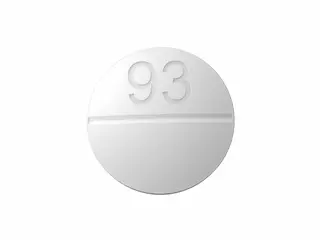Gastrointestinal Health
Discover a wide range of effective products designed to support and maintain your gastrointestinal health. From probiotics and digestive enzymes to remedies for acid reflux and irritable bowel syndrome, find trusted solutions to promote digestive comfort and overall wellness. Shop now for quality supplements and treatments to improve your gut health.
Gastrointestinal health is crucial for overall well-being. Many people face problems like acid reflux, indigestion, irritable bowel syndrome, and diarrhea. Medications help manage these issues effectively. Here, we review some popular drugs used for gastrointestinal health.
Aciphex (Rabeprazole) is a proton pump inhibitor (PPI). It reduces stomach acid production. Patients use it to treat GERD, ulcers, and Zollinger-Ellison syndrome. Aciphex works quickly and provides relief from heartburn and acid reflux.
Asacol (Mesalamine) is an anti-inflammatory drug. It treats ulcerative colitis, a chronic bowel disease. Asacol targets inflammation in the colon and helps reduce symptoms like diarrhea and abdominal pain. It is usually taken orally in the form of tablets or capsules.
Colospa (Mebeverine) is an antispasmodic medication. It helps relieve cramps and spasms in the intestines. Colospa is commonly used for irritable bowel syndrome (IBS) and other digestive disorders. It works by relaxing the muscles in the gut.
Imodium (Loperamide) is an anti-diarrheal drug. It slows down bowel movements and reduces diarrhea. Imodium is often used for acute diarrhea and diarrhea related to IBS. It offers quick relief and improves stool consistency.
Maxolon (Metoclopramide) promotes stomach emptying and intestinal movement. It's prescribed for nausea, vomiting, and gastroparesis. Maxolon also improves digestion by enhancing gastric motility. It should be used under medical supervision due to potential side effects.
Motilium (Domperidone) is similar to Maxolon. It increases gastric motility and relieves nausea and bloating. Motilium is safer for long-term use and also helps with symptoms of indigestion and delayed stomach emptying.
Nexium (Esomeprazole) is a widely used proton pump inhibitor. It reduces acid production in the stomach. Nexium treats GERD, ulcers, and helps prevent damage caused by stomach acid. It is known for fast, effective relief.
Pentasa (Mesalamine) is another anti-inflammatory drug for ulcerative colitis. It works by reducing inflammation in the bowel lining. Pentasa is available in different forms, including tablets and suppositories, targeting inflammation throughout the colon.
Pepcid (Famotidine) belongs to the H2 blocker class. It lowers acid production in the stomach. Pepcid is used for heartburn, GERD, and ulcers. Its onset of action is slightly faster than PPIs but lasts for a shorter time.
Prevacid (Lansoprazole) is a proton pump inhibitor. It helps reduce stomach acid and heal erosions in the stomach lining. Prevacid is effective for GERD, ulcers, and Zollinger-Ellison syndrome. It often provides lasting relief from acid-related symptoms.
Prilosec (Omeprazole) is one of the most well-known PPIs. It blocks acid production and promotes healing of the stomach lining. Prilosec is used for GERD, ulcers, and conditions needing acid suppression. It is widely available and has a solid safety profile.
Protonix (Pantoprazole) is a proton pump inhibitor with a longer duration of action. It treats GERD, erosive esophagitis, and Zollinger-Ellison syndrome. Protonix is preferred for severe acid-related conditions requiring constant acid control.
Reglan (Metoclopramide) works to increase muscle contractions in the stomach. It treats nausea, vomiting, and gastric emptying delays. Reglan is helpful after surgeries or for diabetic gastroparesis. It requires careful monitoring due to possible neurological side effects.
Xifaxan (Rifaximin) is an antibiotic used mainly for traveler's diarrhea and irritable bowel syndrome with diarrhea (IBS-D). It works locally in the gut to reduce harmful bacteria. Xifaxan offers symptom relief without affecting the entire body’s bacterial flora.
Each medication in this category targets different digestive issues. Proton pump inhibitors (PPIs) like Nexium, Prilosec, and Prevacid focus on reducing stomach acid. They are essential for GERD and ulcer treatment. H2 blockers such as Pepcid work faster but for shorter periods compared to PPIs.
For inflammatory bowel diseases, mesalamine derivatives like Asacol and Pentasa help control inflammation without steroids. Antispasmodics like Colospa relieve bowel cramps. Anti-diarrheal agents such as Imodium control symptoms of loose stools quickly.
Prokinetics, including Maxolon, Motilium, and Reglan, improve motility and reduce nausea. They assist especially with delayed gastric emptying or gastroparesis. Xifaxan addresses bacterial causes of diarrhea and IBS-D by reducing gut bacteria overgrowth.
Choosing the right medication depends on the condition being treated. Some drugs focus on symptom relief. Others promote healing or control inflammation. Always consult a healthcare provider before starting any medication. Correct diagnosis and dosage are important for safety and effectiveness.
Most gastrointestinal medications are well-tolerated but may have side effects. Common issues include headaches, nausea, and sometimes more serious reactions. Regular monitoring is necessary, especially for long-term use. Effectiveness varies between individuals, so adjustments may be needed.
Overall, these medications play a vital role in managing gastrointestinal health. They help reduce discomfort, improve digestion, and prevent serious complications. When combined with lifestyle changes such as diet modification, they can significantly enhance quality of life.













